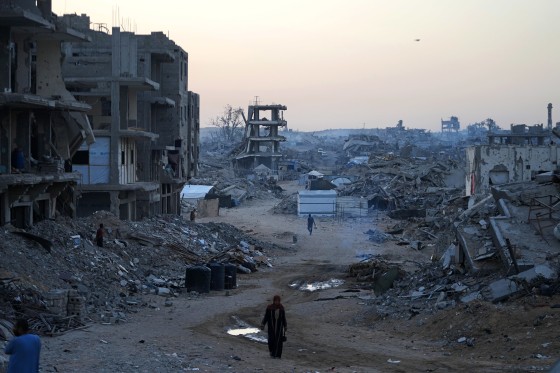President Donald Trump is touting an international force to help bring peace to the shattered Gaza Strip and see that all deceased hostages held by Hamas are returned to Israel.
Trump’s 20-point plan specifies that the United States would work with Arab and other “international partners” to secure areas Israeli forces have withdrawn from. “This force will be the long-term internal security solution,” the plan adds.
But what’s known as the International Stabilization Force (ISF) is far from a reality, and so far it lacks a detailed mission, confirmed participants and sources of funding. So as the Israel-Hamas ceasefire frays — Israel carried out airstrikes in Gaza on Tuesday after, it said, Hamas fighters attacked its forces — several experts questioned its viability in interviews with NBC News.
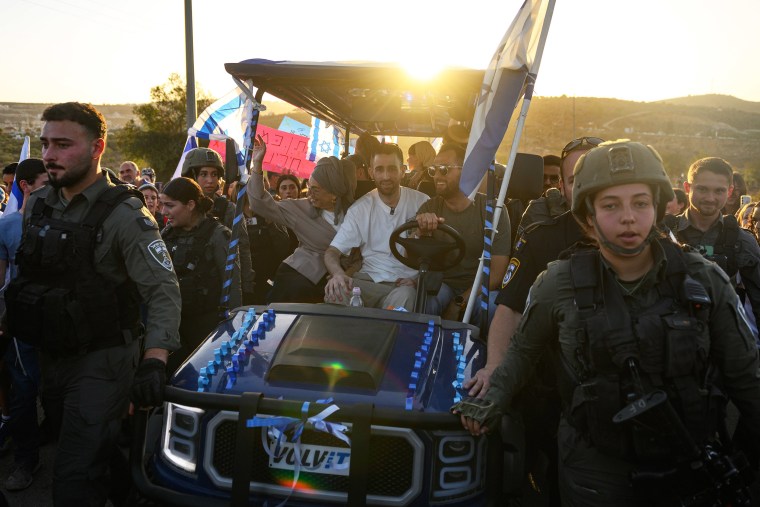
A key question is who would provide the soldiers required for the force.
“They’re able to take care of it — very substantial nations,” President Donald Trump said about the force and its future participants aboard Air Force One on Saturday. “And we have Saudi Arabia, UAE, Qatar, the three, and then you have many behind them. ... If you look, Turkey’s involved. Indonesia is involved. Jordan, Egypt.
“Everybody’s, everybody’s on board,” he added.
But only two countries have publicly said they would be willing to participate — Turkey and Indonesia. All the other countries Trump mentioned have remained silent, explicitly refused or made their participation conditional.
Jordan’s King Abdullah has said his country’s troops wouldn’t operate inside Gaza.
Although Turkey has stated its willingness to commit forces, it has also said there needs to be a defined mission before it proceeds. And Israel has ruled out Ankara’s involvement. (Turkey is an outspoken supporter of the Palestinians and a vocal critic of the war in Gaza.)
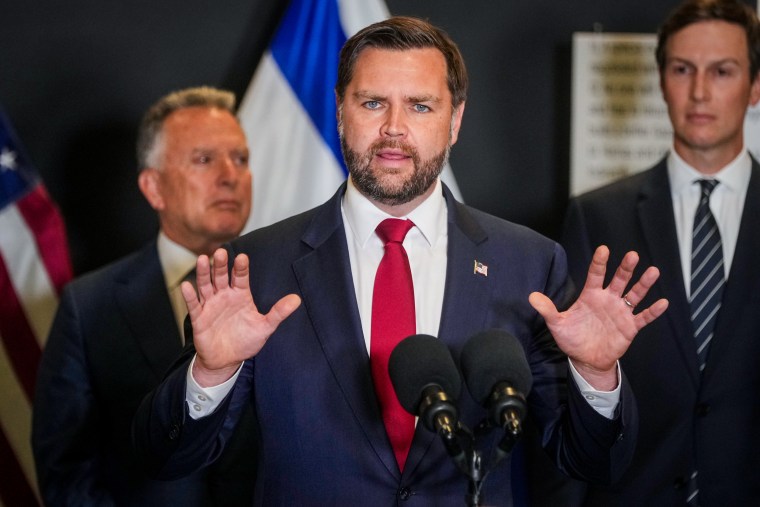
The stakes could hardly be higher: Without stability, the Israeli military could resume its assault on the enclave — where nearly 70,000 Palestinians and hundreds of Israeli soldiers have already been killed — and Hamas could continue rearming and asserting its control over the shattered territory.
Daniel B. Shapiro, who was the U.S. ambassador to Israel from 2011 to 2017, said that as an idea, the ISF was essential.
It was “critical to have a transition security force,” he told NBC News last week. “Otherwise, there would be a complete vacuum.”
Secretary of State Marco Rubio also stressed its importance last week during a trip to Israel.
“There is no plan B,” he said.
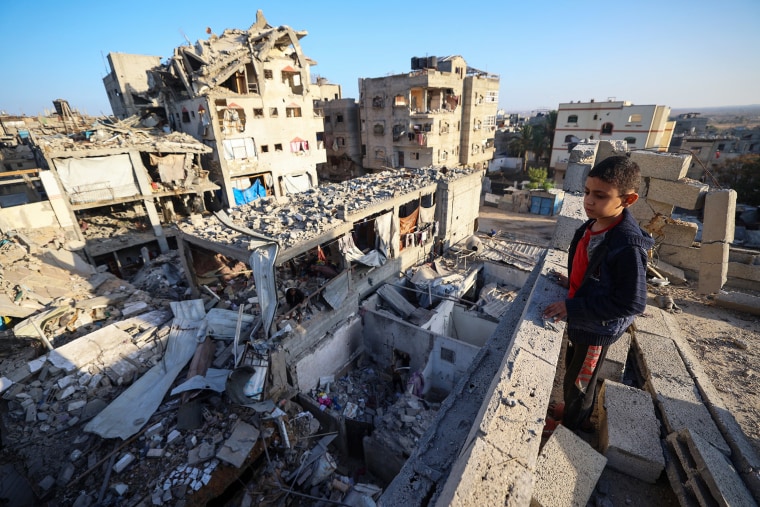
While the Trump administration has repeatedly ruled out sending American soldiers into Gaza, Rubio said “a lot of countries have expressed interest” in joining the force, including Indonesia and Azerbaijan.
“I think they’d want to know what’s the mandate, what’s the mission, what are the rules of engagement, what is this force supposed to do,” he said, adding that Israelis would be “in this force.”
NBC News has reached out to embassies of the countries Trump and Rubio most recently mentioned as possible participants — Saudi Arabia, the United Arab Emirates, Qatar, Egypt, Turkey, Indonesia and Azerbaijan — and none replied to questions about the ISF.
Indonesian President Prabowo Subianto did say in a speech at the United Nations in September that his country was ready to deploy troops to Gaza.
According to Rubio, one complication is that many of the countries that have said they are willing to send troops, money or both would require a United Nations resolution or an international agreement to authorize their involvement. Israel has long been deeply critical of the role the U.N. plays in Gaza and the occupied West Bank, accusing it of bias and of perpetuating the conflict by maintaining Palestinians in a permanent refugee status.
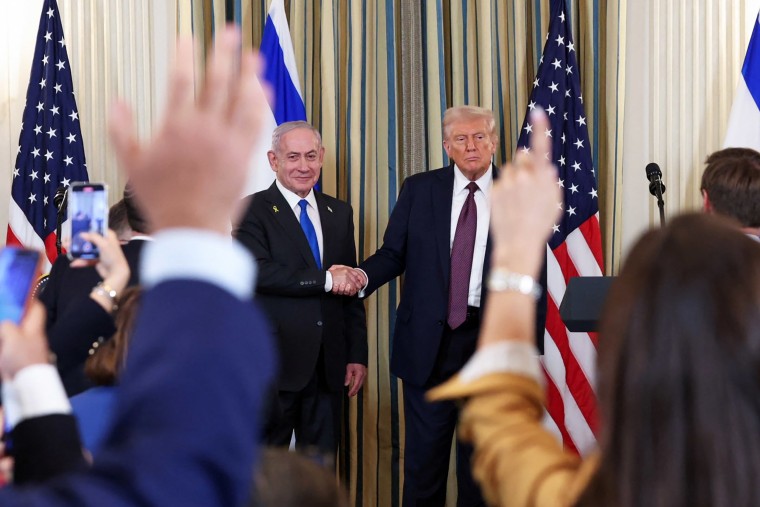
Hamas, which hasn’t commented on the ISF plans, is also a wild card.
Even in the “best case scenario,” it would most likely take months to establish any kind of international stabilization force in the enclave, especially if Hamas doesn’t agree to lay down its weapons, said Shapiro, who is a fellow at the Washington-based Atlantic Council think tank, pointing to a key stipulation of Trump’s plan and a long-standing demand from Israel.
Natan Sachs, a senior fellow at the Washington-based Middle East Institute think tank, said, “If a security force was charged with disarming [Hamas] and dislodging them as the Trump plan detailed, there is no question to my mind that they would resist that and resist that with force.”
As well as the makeup and number of troops, it isn’t clear how the force would be funded, although Matthew Duss, the executive vice president of the Center for International Policy, a Washington-based think tank, said he thought “the presumption is that the Arab states, the Saudis, others would be paying for this.”
“As much as it’s being talked about, there’s very little in the way of details that have been worked out yet,” said Duss, a former foreign policy adviser to Sen. Bernie Sanders, I-Vt.
Although he was “very skeptical” about the plan, Duss said an international, U.N.-backed force “brought stability” in the Balkans after the breakup of the former Yugoslavia in the early 1990s.
But at a regional level, he said, the U.N. Interim Force in Lebanon (UNIFIL) hadn’t “worked as well.” Tasked with keeping the peace between Israel and the Hezbollah militant group, which, like Hamas, is funded by Iran, UNIFIL peacekeepers have on many occasions been caught in the crossfire or come under attack themselves.
“You need a force there that is just going to create some measure of law and order,” he said. “Given that the Gaza Strip has been utterly devastated, this is an enormous task — even the most committed and efficient military would have trouble in this scenario. We saw how the United States struggled in occupying Iraq and Afghanistan.”
